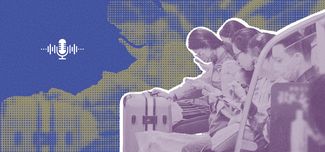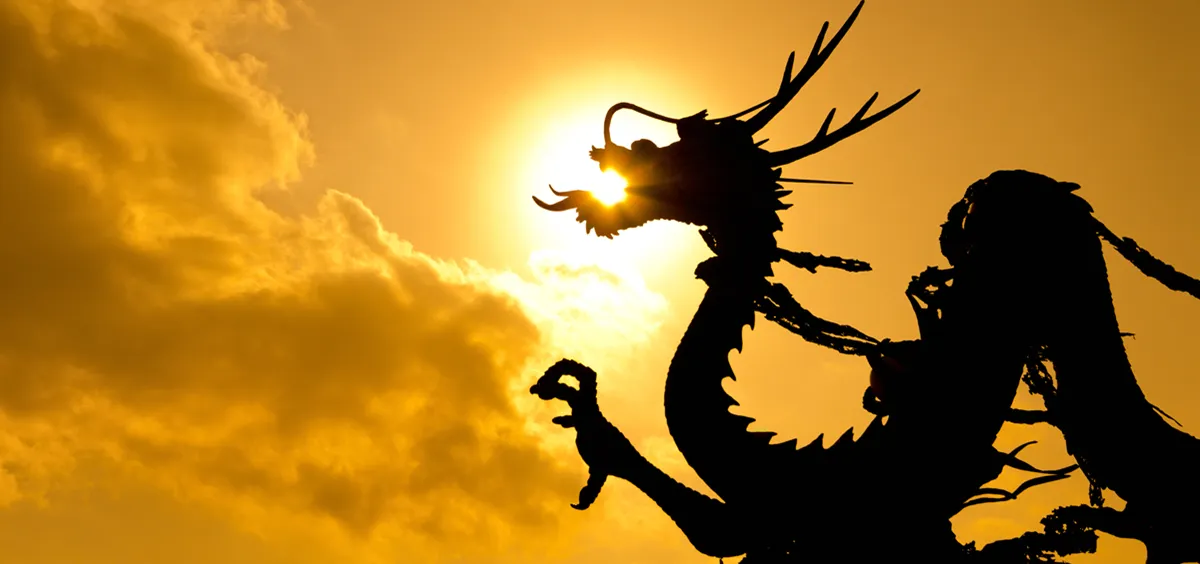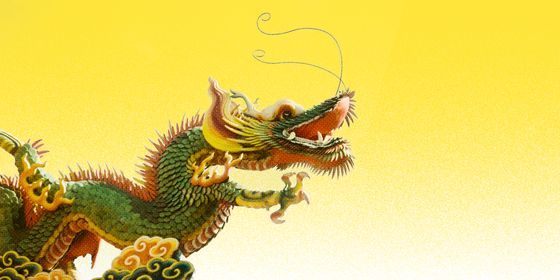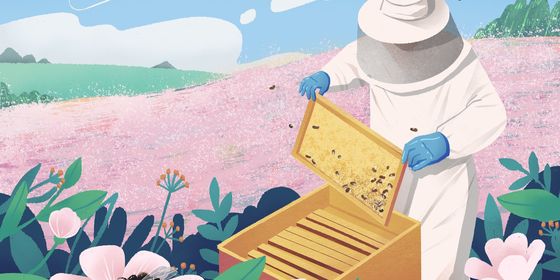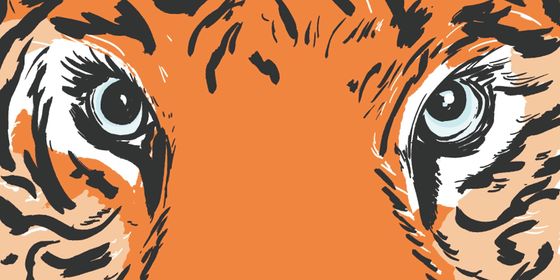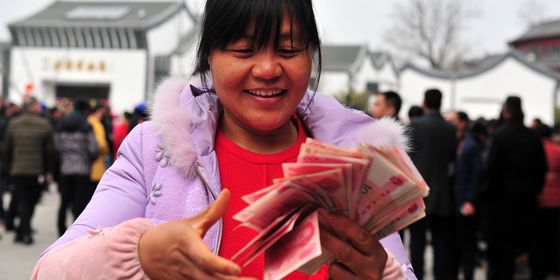Idioms to celebrate the Dragon King
On the second day of the second lunar month, China celebrates Dragon Head Raising Day (龙抬头), which fell on February 24 this year. On that day, it’s believed that the Dragon King, the god of rain, will raise its head, bringing rainfall and marking the farming season.
It is also tradition to make a trip to a hair salon on this day. People believe that if they have their hair cut during Dragon Head Raising Day, they will have a good fortune in the rest of this year.
Dragons, or long (龙), are much revered in traditional Chinese culture: parents even plan the births of their children with the mythical beast in mind (the zodiac years of the Dragon see an observable spike in birth rates across the Chinese-speaking world). Many legends about the mythical animal have flourished, providing an abundance of chengyu, with the dragon often found paired with another fearsome animal, the tiger.
卧虎藏龙 Crouching tiger, hidden dragon
Though many people will think of Ang Lee’s film of the same name, this chengyu was well-known long before the movie and actually refers to an undiscovered talent. Those not yet recruited by employers, despite their outstanding ability, are considered just like a tiger or dragon hidden in the wild.
This place is full of undiscovered talents. You had better be humble!
Zhège dìfang wòhǔ cánglóng, nǐ zuìhǎo háishi qiānxū yìdiǎn!
这个地方藏龙卧虎,你最好还是谦虚一点!
龙盘虎踞 Where dragons coil and tigers crouch
This chengyu refers to an area of strategic importance, and has long been associated with the city of Nanjing. According to the Records of the Wu, written during the Jin dynasty (265 – 420), when Zhuge Liang, the great strategist of the Three Kingdoms era (220 – 280), arrived in Nanjing, he commented: “Mount Zhong is like a coiled dragon, and Shitou city is like a tiger crouching.
Many dynasties selected Nanjing as their capital, because it occupies forbidding terrain, and has strategic importance.
Xǔduō cháodài dìngdū Nánjīng, shì yīnwèi tā lóngpán hǔjù, dìshì xiǎnyào.
许多朝代定都南京,是因为它龙蟠虎踞,地势险要。
龙腾虎跃 Dragons soaring and tigers leaping
This chengyu is often used to describe a location full of bustling activities.
This city has seen tremendous changes, becoming a hive of activity.
Zhège chéngshì zǎoyǐ shì tiānfān dìfù, lóngténg hǔyuè.
这个城市早已是天翻地覆,龙腾虎跃。
龙争虎斗 A dragon and a tiger in combat
Since both dragon and tiger are believed to be formidable animals, this chengyu describes a fierce struggle between two evenly matched opponents.
The match between them will certainly be fiercely fought.
Tāmen zhījiān de bǐsài yídìng shì yì chǎng lóngzhēng hǔdòu.
他们之间的比赛一定是一场龙争虎斗。
龙潭虎穴 Dragon’s pool and tiger’s den
Only a fool would wander about a pool that a dragon calls homes, or venture into a tiger’s den. This chengyu used to refer to an extremely dangerous place.
Even if it’s incredibly dangerous, I’ll still go there to save my friend.
Jiùsuàn nàli shì lōngtán hǔxuè, wǒ yě yào qù jiù wǒ de péngyǒu.
就算那里是龙潭虎穴,我也要去救我的朋友。
Cover image from VCG




